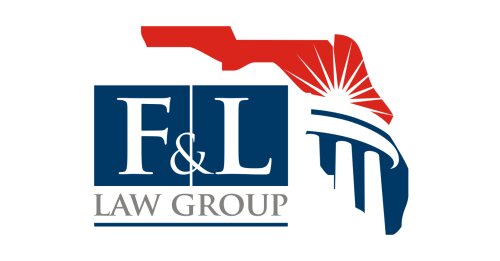Best General Litigation Lawyers in Florida
Share your needs with us, get contacted by law firms.
Free. Takes 2 min.
Or refine your search by selecting a city:
List of the best lawyers in Florida, United States
About General Litigation Law in Florida, United States
General litigation refers to the broad area of legal practice that involves resolving disputes between parties before, during, and after a lawsuit is filed. In Florida, general litigation can cover a wide range of civil matters, including contract disputes, personal injury claims, property disputes, business conflicts, and more. Florida courts handle both state and federal cases, and litigators represent clients through every stage of the dispute process, from investigation and pleadings to trial and appeals. The goal of general litigation is to protect clients' rights and interests under Florida law, whether through negotiation, mediation, arbitration, or courtroom proceedings.
Why You May Need a Lawyer
Seeking legal help in the area of general litigation is common for individuals and businesses facing a variety of disputes. Some situations where hiring a lawyer is especially important include:
- Being sued or considering filing a lawsuit
- Breach of contract or business disagreement
- Property and real estate disputes
- Claims of negligence or personal injury
- Employment-related conflicts
- Consumer protection or fraud cases
- Landlord-tenant disputes
- Collections and debt recovery issues
- Disputes with government agencies or municipalities
- Appealing a court decision
An experienced litigator can provide guidance on your legal options, develop a strategy tailored to your needs, handle complex procedural requirements, and advocate for you in and out of court.
Local Laws Overview
Florida’s general litigation landscape is shaped by a combination of state statutes, case law, and procedural rules:
- The Florida Rules of Civil Procedure govern how civil cases are filed, served, and litigated in the state’s courts.
- The Florida Statutes address substantive law on contracts, torts, property rights, and more.
- Florida operates under a comparative negligence system, meaning that fault can be shared among parties in personal injury cases.
- Strict requirements exist for filing timelines, known as statutes of limitations, which differ depending on the type of case.
- Certain cases must go through pre-suit notice or alternative dispute resolution, such as mediation, before proceeding to court.
- Florida courts recognize both compensatory and punitive damages, but there are legal limits, especially for punitive damages.
- Specific local court rules and administrative orders may apply depending on the county or judicial circuit.
Understanding these laws and procedures is essential for anyone involved in litigation in Florida, which is why local legal expertise is so valuable.
Frequently Asked Questions
What is the difference between civil litigation and criminal litigation?
Civil litigation involves disputes between individuals or entities seeking monetary damages or corrective action, while criminal litigation involves prosecuting someone accused of violating criminal laws.
How long do I have to file a lawsuit in Florida?
The duration varies depending on the type of case. For example, the statute of limitations for personal injury is typically four years from the incident, while breach of contract cases are generally four or five years, depending on whether it's written or oral.
Do I always have to go to court to resolve a dispute?
Not necessarily. Many cases in Florida are resolved through negotiation, settlement, mediation, or arbitration before reaching trial.
What happens if I ignore a lawsuit served to me?
Ignoring a lawsuit can result in a default judgment against you, meaning the other party automatically wins and can enforce the judgment.
Can I recover my attorney fees if I win my case?
In Florida, attorney fees can only be recovered if there is a law or contract provision that allows it. Otherwise, each party typically pays their own legal fees.
What is mediation and is it required in Florida?
Mediation is a non-binding process where a neutral third party helps disputing parties try to reach a resolution. Most Florida courts require parties to attempt mediation before trial in civil cases.
What is discovery in the litigation process?
Discovery is the pre-trial phase where both parties exchange information, evidence, documents, and conduct depositions to build their cases.
How do I respond to a lawsuit in Florida?
You must file a written legal answer with the court within the time specified in the summons, often 20 days. Failing to respond can result in a default judgment.
What damages can I recover in a civil litigation case?
Depending on the case, you may recover compensatory damages (covering your losses), punitive damages (meant to punish wrongful acts), and sometimes injunctive relief (court-ordered actions).
Should I represent myself or hire a lawyer?
While you have the right to represent yourself in court, litigation is complex. A lawyer can help protect your rights, avoid costly mistakes, and improve your chances of a successful outcome.
Additional Resources
If you need more information or assistance regarding general litigation in Florida, consider these resources:
- Florida Bar Association - Offers lawyer referral services and general legal information.
- Florida State Courts - Publishes rules of procedure and self-help resources.
- Florida Legal Services - Provides free and low-cost legal help for eligible Floridians.
- Florida Department of Business and Professional Regulation - For business-related disputes.
- Local county clerk of courts - For accessing court records and filing documents.
- Legal Aid Organizations - Offer assistance for those who qualify based on income or case type.
Next Steps
If you believe you need legal assistance with a general litigation matter in Florida, consider taking these steps:
- Gather all documentation related to your dispute, including contracts, correspondence, bills, and any previous court papers.
- Identify any deadlines for response or action, such as court dates or notice periods.
- Contact a qualified Florida-licensed attorney with experience in general litigation for a consultation.
- Prepare a list of questions or concerns to discuss with your attorney.
- Consider alternative dispute resolution options, such as mediation, if appropriate for your case.
- Stay organized and maintain clear records of all communications and proceedings.
Promptly seeking legal advice can help protect your interests and ensure your case is handled according to Florida law.
Lawzana helps you find the best lawyers and law firms in Florida through a curated and pre-screened list of qualified legal professionals. Our platform offers rankings and detailed profiles of attorneys and law firms, allowing you to compare based on practice areas, including General Litigation, experience, and client feedback.
Each profile includes a description of the firm's areas of practice, client reviews, team members and partners, year of establishment, spoken languages, office locations, contact information, social media presence, and any published articles or resources. Most firms on our platform speak English and are experienced in both local and international legal matters.
Get a quote from top-rated law firms in Florida, United States — quickly, securely, and without unnecessary hassle.
Disclaimer:
The information provided on this page is for general informational purposes only and does not constitute legal advice. While we strive to ensure the accuracy and relevance of the content, legal information may change over time, and interpretations of the law can vary. You should always consult with a qualified legal professional for advice specific to your situation.
We disclaim all liability for actions taken or not taken based on the content of this page. If you believe any information is incorrect or outdated, please contact us, and we will review and update it where appropriate.
Browse general litigation law firms by city in Florida
Refine your search by selecting a city.















